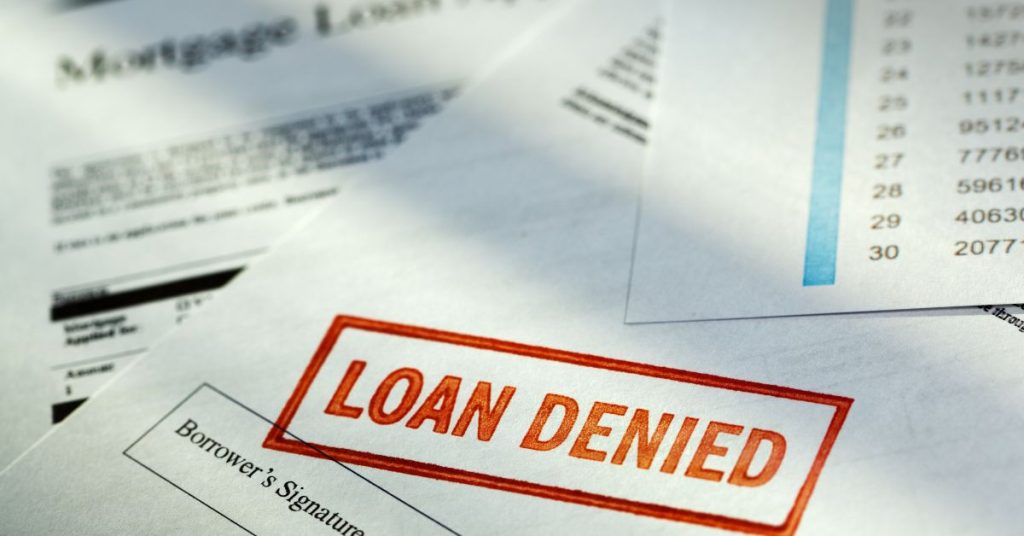After getting your offer accepted, it can be devastating to any aspiring homeowner to face rejection for a home loan. The FHA loan is no exception to that.
When dealing with an obstacle like this, the best path forward is to identify what could’ve gone wrong and improve. This article will help you with just that.
Can You Be Denied an FHA Loan?
Although FHA loans are known to be more lenient and flexible when it comes to their FHA lending requirements, it is still subject to the lender’s approval if the borrower is deemed to be a worthy investment.
If lenders gave out loans to anyone who asks for it, then they would lose a lot of money. To mitigate this, underwriting is done.
What is Underwriting?
Underwriting is a crucial aspect of any loan process, including the FHA loan. It is the assessment of an applicant’s finances to decide whether the applicant should be given the loan or not.
With this, the FHA underwriter’s job is to check the borrower’s:
- Income. The lender will ask for two years worth of proof of income to ensure that you have money coming in that will help you pay off your loan. You can submit pay-stubs, W-2 income statements, or tax returns as evidence. Ideally, you should have a stable job that will continue for the foreseeable future.
- Credit score. Your credit score is a reflection of your past loans and payments. The higher the credit score, the more you are seen as a non-risky person to lend to. Although FHA loans are known to have a lenient minimum credit score and down payment requirements, different lenders may have different criteria, even when refinancing. Some will require a credit score of 580 to put a down payment of 3.5%, even if the FHA suggests that 500 will be the minimum credit score.
- Debt-to-Income ratio. Your DTI represents how much debt you have in relation to your income. The lower your DTI, the better. The standard guideline for FHA loans is 43%. Higher DTIs can be approved but you must have compensating factors for it to be considered.
If the underwriter assesses that the borrower does not fit the eligibility criteria, then they are denied the loan. This is the same throughout all types of loans.
How Often Do Underwriters Deny FHA Loans?
If you are wondering how often underwriters deny FHA loans – according to data collected under the Home Mortgage Disclosure Act, the denial rate for FHA loans in 2025 stands at 14.1%.
Will Underwriter Approve My FHA Loan?
In FHA loans, there are two points in which the borrower gets approval and moves forward in the process.
The first is the pre-approval which is done by your local FHA lender. This is to ensure that the lender is not wasting any time and is entertaining a client that can potentially be qualified for an FHA loan.
The second is the actual mortgage approval which is done by the FHA underwriter. This is where the borrower’s credentials and financial status are heavily scrutinized to ensure that they are a good investment for the lender.
As mentioned earlier, FHA loans are more flexible with their requirements but rejections are still possible. The most common reasons also relate to the above-listed factors that an underwriter must check.
- Recent job change. Lenders are more inclined to lend to those that are financially stable. If you have just gone through a recent employment change, this can set you back.
- Low credit score. The minimum credit score requirement as stated by FHA loan guidelines is 500. But remember, at the end of the day, it’s the lenders that fund the loan, so some have differing credit score requirements and may avoid those with lower scores to mitigate risks.
- High DTI. If your DTI is too high, lenders may think that you are not able to take on this additional debt.
- Low appraisal. FHA loans require an appraisal to determine how much they will lend you. If the appraised value of the home comes out shorter than the selling price, you will either have to pay the difference out of pocket or step away from the loan.
What to Do if FHA Loan is Denied
The Consumer Financial Protection Bureau suggests those rejected to ask for an explanation from their lender on why their application was declined. Once you know the reason behind the denial, the next best course of action is to improve your financial standing.
Make sure that you have a stable job, focus on improving your credit score through on-time payments, and work on paying off your debts.
It’s also a good idea to save up extra money since extra payments always occur.
You should also be prepared for a low appraisal. In cases like these, some pay for the entire gap out of pocket, meet halfway with the seller, or in the best case scenario, get the seller to lower the price completely.
If you are getting an FHA 203(k) loan, your lender might also ask for additional fees.
However, if you believe that you’re already in a good financial position, you might not have to wait too long before applying again for another loan.
Don’t Lose Hope
Everyone knows that the road to home ownership can be a bumpy one. To ensure a smoother ride the next time, make sure that you are in a good place financially before diving in again for another loan application.
Stable income, high credit scores, low DTI, and cash-on-hand are good indicators that you’re heading down the right path. With a little patience and dedication, you’ll have the keys to your dream home in no time.
Don’t hesitate to contact us for a smoother home-buying experience.
Frequently Asked Questions
How long does underwriting take for FHA loans?
There are many factors that can affect how long the underwriting process is in an FHA loan. The files passed by the loan officer may be incomplete and/or the underwriter may be very busy. But typically, it can take a few days to a few weeks.
Can underwriters make exceptions?
The short answer is: yes. However, this can only occur if you have strong compensating factors. For example, you may have a lower credit score but your DTI is very low or you’re putting a down-payment than is more than required.






